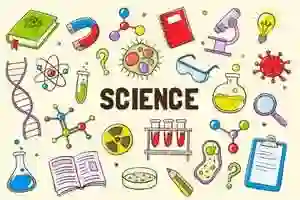Einstein’s Theory of Relativity: When it comes to scientific breakthroughs, few are as influential as […]
![]()

Title: The Promise of Gene Editing: A Revolution in Science
Gene editing, a technique that allows scientists to modify the DNA of living organisms, has emerged as a powerful tool for scientific research and has the potential to revolutionize medicine, agriculture, and biotechnology. This technology involves the precise cutting and editing of specific genes within an organism’s DNA, which can have a range of effects, from eliminating genetic diseases to enhancing crop yields.
One of the most promising applications of gene editing is in the field of medicine. Researchers are exploring how gene editing can be used to treat genetic diseases such as sickle cell anemia, cystic fibrosis, and Huntington’s disease. By editing the specific genes that cause these diseases, scientists hope to cure them and prevent them from being passed on to future generations.
Another exciting application of gene editing is in agriculture. Scientists are using this technology to modify the genes of crops to make them more resistant to pests and diseases, and to increase their yields. Gene editing could also help create crops that are more nutritious and better suited to grow in challenging environmental conditions, such as droughts or floods.
Despite the many promises of gene editing, there are also concerns about the ethical implications of this technology. One major concern is the potential for gene editing to be used for eugenic purposes, such as creating so-called “designer babies” with specific traits. There are also concerns about the unintended consequences of gene editing, such as off-target effects that could lead to new genetic diseases or unforeseen environmental impacts.
To address these concerns, many scientists are advocating for responsible use of gene editing and are calling for greater oversight and regulation of this technology. In addition, ongoing research and collaboration between scientists, policymakers, and the public will be critical in ensuring that gene editing is used safely and ethically.
In conclusion, gene editing holds tremendous promise for revolutionizing science and improving human life, from curing genetic diseases to enhancing food security. However, it is important to proceed with caution and to consider the potential ethical and environmental impacts of this technology. With responsible use and thoughtful regulation, gene editing could usher in a new era of scientific discovery and innovation.
Einstein’s Theory of Relativity: When it comes to scientific breakthroughs, few are as influential as […]
![]()
Newton’s Laws: Physics is one of the most fascinating subjects that humanity has ever encountered. […]
![]()
![]()
![]()
![]()
![]()
![]()
![]()
![]()
![]()
![]()
![]()
Darwin’s Evolution Theory: Charles Darwin’s theory of evolution, published in his book “On the Origin […]
![]()
![]()
![]()
![]()
![]()
![]()
![]()
![]()
![]()
![]()
![]()
Nuclear Weapon: The development of nuclear weapons represents one of the most significant advancements in […]
![]()
![]()
![]()
![]()
![]()
![]()
![]()
![]()
![]()
![]()
![]()
OSIRIS-REx: In September 2016, NASA launched a spacecraft called OSIRIS-REx (Origins, Spectral Interpretation, Resource Identification, […]
![]()
![]()
![]()
![]()
![]()
![]()
![]()
![]()
![]()
![]()
![]()
Deep Space Climate Observatory: The Deep Space Climate Observatory (DSCOVR) is a spacecraft that was […]
![]()
![]()
![]()
![]()
![]()
![]()
![]()
![]()
![]()
![]()
![]()
Cyclone Global Navigation Satellite System: An Innovative Tool for Hurricane Forecasting The world has seen […]
![]()
![]()
![]()
![]()
![]()
![]()
![]()
![]()
![]()
![]()
![]()
Chloroplast: The Engine of Photosynthesis Chloroplasts are organelles found in plant cells that are responsible […]
![]()
![]()
![]()
![]()
![]()
![]()
![]()
![]()
![]()
![]()
![]()
What is Curiosity Rover: The Curiosity Rover is a robotic space exploration mission launched by […]
![]()
![]()
![]()
![]()
![]()
![]()
![]()
![]()
![]()
![]()
![]()
Dwarf Galaxies: Dwarf galaxies are small galaxies that contain fewer stars and less mass than […]
![]()
![]()
![]()
![]()
![]()
![]()
![]()
![]()
![]()
![]()
![]()